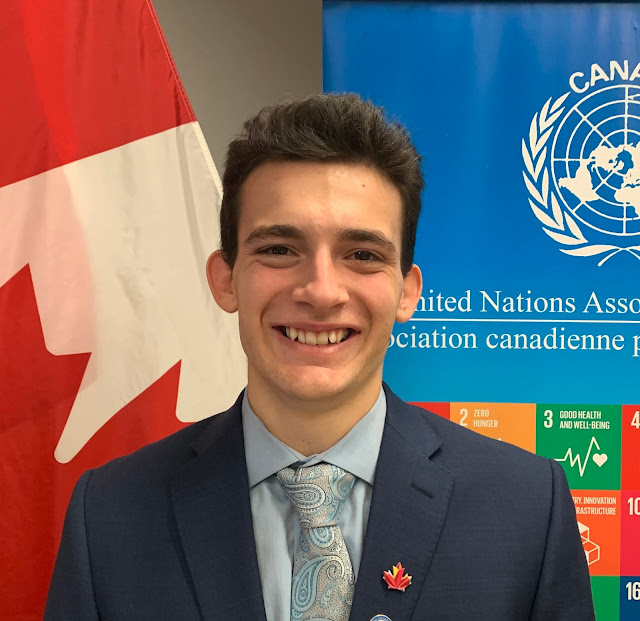Maria Chiarella's Journey Working with Nature: Nature-based Solutions at COP25
Maria Chiarella, former JPC with UNDP Vietnam at COP25 in Madrid, Spain
Maria Chiarella's Journey Working with Nature: Nature-based Solutions at COP25
Written by Maria Chiarella
With over 31,000 people attending the conference, it the
most important forum on climate change in the world. It is one of the few
opportunities where every party has an equal voice as bigger and much powerful
economies in the world. It also brings together Indigenous groups, youth
activists civil society and the private sector.
I was chosen to attend this event because I was a former
Junior Professional Consultant with UNDP Vietnam, and was generously funded by
Environment and Climate Change Canada. I took this opportunity as a chance to
learn how nature-based solutions have a role in the fight against climate
change, and was interested in the topic because of my background in the forestry
sector and international development.
In fact, during my time with UNDP Vietnam, I worked in a
project in which one of the objectives was to regenerate 4,000 hectares of
mangrove forests that would act as buffer zones between the sea and rural coastal
communities along Vietnam’s coastline. It was the perfect opportunity to
continue my learning about a topic that has made a lasting impact on my life.
One of the key takeaways for me from the conference was
that forests are one of the key solutions to climate change- in fact, as a
nature-based solution, it accounts for 30% of the solution.
Nature-based solutions are also one of the most
cost-effective options and provide synergy between mitigation and adaption.
Forests are home to many people, provide ecosystem services, accounts for 80%
of terrestrial biodiversity, holds cultural and Indigenous significance, act as
a carbon sink, and much more. Parties agree that forests are a solution to the
climate crisis we are facing, and it was fascinating to hear how many countries
are already aligning their Nationally Determined Contributions (NDCs) with the
implementation of ecosystem related approaches, which includes sustainable forests and conservation practices.
What I’ve learned the most throughout this experience is
the importance of working with nature to combat climate change. We often think
that the solutions to the climate crisis must rely on technology- and while
innovation plays a role, it is evident that nature can also heal itself on its
own. What is needed is investing in projects that let nature lead the process,
and us supporting it.
I’m grateful to have had the opportunity to gain so much
knowledge, network, and be inspired by the incredible work being done for the
common goal of creating a better future. Through this experience, I’ve also
been able to transfer knowledge to my current position within the forestry
sector, and the experience will be a major influence when I choose my Master’s
degree.
It was great to come full circle on the projects I’ve
done in the past and see how forests still play a large role in my life today.
If we protect nature, nature, in turn, will protect us.



Comments
Post a Comment